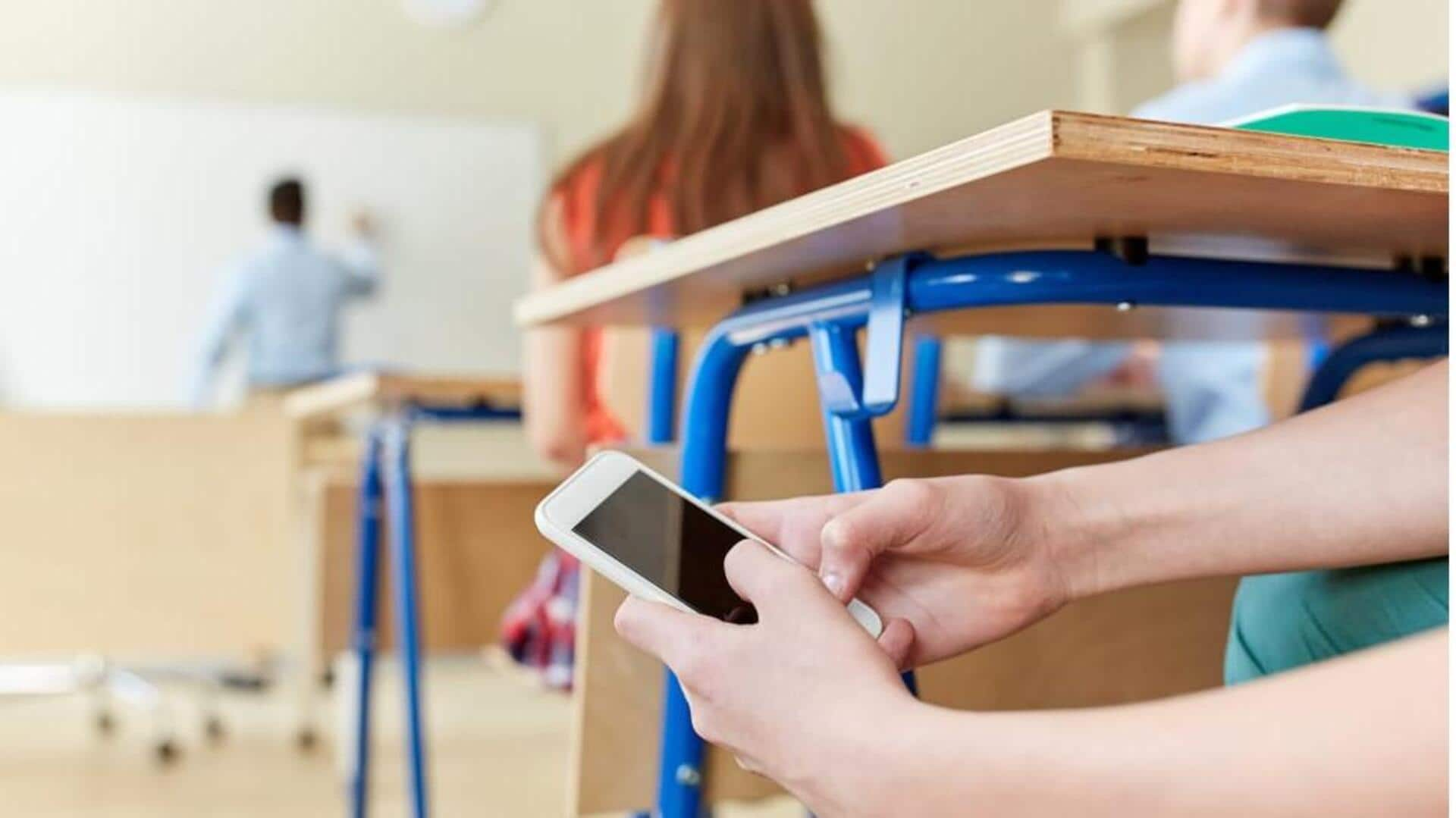
One-minute phone breaks can improve students' focus, performance: Study
What's the story
A recent study conducted by researchers at Southern Illinois University in the US, has suggested that one-minute phone breaks could potentially enhance students' focus and academic performance. The study, led by professor Ryan Redner and published in Frontiers in Education, is the first of its kind to evaluate the impact of such breaks within a college classroom setting. "We show that technology breaks may be helpful for reducing cell phone use in the college classroom," said Redner.
Methodology
Study explores varying lengths of breaks
The research team assessed the effectiveness of phone breaks lasting one, two, or four minutes over a full academic term. These breaks were compared to equally long question breaks, where students were encouraged to ask questions but not use their phones. Both types of breaks were scheduled 15 minutes into each lecture. The study defined phone use as any physical interaction with the device.
Findings
One-minute breaks most effective
The study found that students used their phones less during sessions with phone breaks, compared to those with question breaks. Interestingly, one-minute technology breaks were most effective in reducing phone use. Redner suggested a possible explanation for this, stating, "One possibility is that one minute is enough to read and send a smaller number of messages."
Academic impact
Short technology breaks linked to improved test performance
The research also revealed a correlation between one-minute technology breaks and improved test performance. In sessions where these short breaks were implemented, students' test scores consistently exceeded 80%. Redner expressed optimism about this finding, stating, "Our hope is that it means students were less distracted during lecture, which leads to better performance."
Reactivity dismissed
Study dismisses reactivity as factor in phone use
The researchers dismissed the possibility of reactivity, where students might alter their behavior due to being observed, as a significant factor in their study. Redner explained that while some reactivity might be seen in early sessions, its effects typically diminish over time. He further noted that students are likely accustomed to using cell phones under observation by professors and peers.
Future research
Researchers call for further studies
Despite their findings, the researchers acknowledged that their data is challenging to interpret due to high variability among sessions. They called for further studies to understand the reasons behind this inconsistency. While phone use decreased in some experimental settings, it was not completely eliminated. Redner concluded by expressing hope that their findings would inspire more reinforcement-based approaches to reducing cell phone use in classrooms.